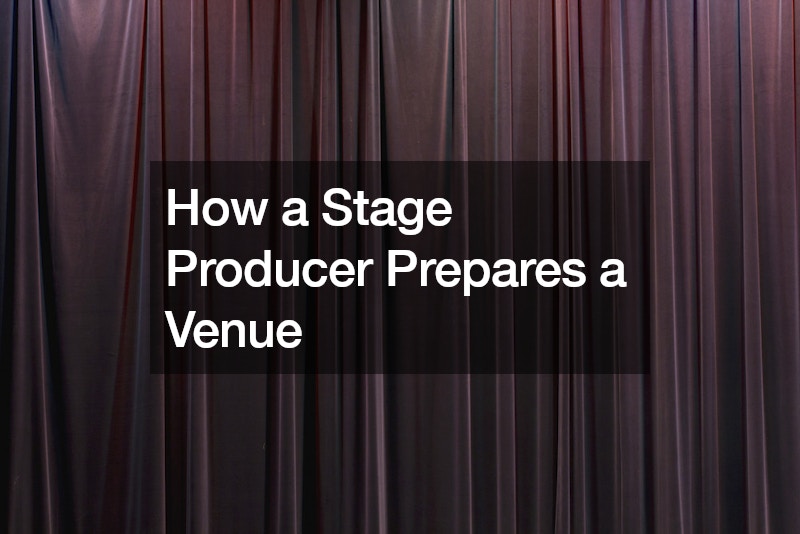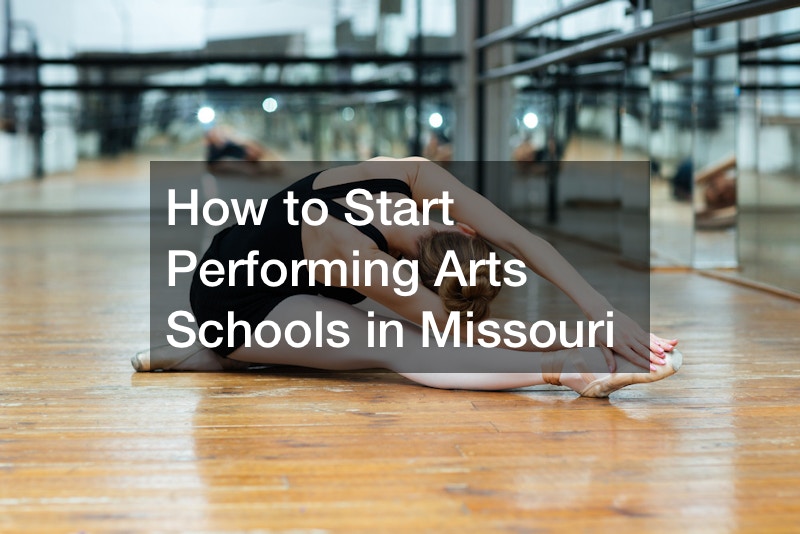
How a Stage Producer Prepares a Venue
Introduction
When it comes to organizing a successful event, the role of a stage producer is crucial. A stage producer is responsible for overseeing all aspects of the production, from planning and scheduling to managing budgets, and coordinating with the production team. One of the key tasks of a stage producer is preparing the venue for the performance, ensuring that everything runs smoothly on the day of the event.
What does a stage producer do?

A stage producer is in charge of planning and scheduling all the activities leading up to the event. They work closely with the production team to ensure that everything is on track and within budget. Additionally, they are responsible for managing budgets and expenses, making sure that all costs are accounted for and that the event stays within budget.
Coordinating with the production team is another essential aspect of a stage producer’s role. They work closely with directors, designers, technicians, and other members of the production team to ensure that everything is in place for a successful event. This includes overseeing rehearsals, coordinating schedules, and addressing any issues that may arise.
Managing budgets and expenses is a critical part of a stage producer’s job. They are responsible for setting and adhering to a budget for the event, allocating funds to different aspects of the production, and keeping track of expenses. This involves negotiating with vendors, suppliers, and contractors to ensure that the event stays within budget.
How does a stage producer choose a venue?
When selecting a venue for an event, a stage producer considers several factors to ensure that it is suitable for the performance. One of the first considerations is the location and accessibility of the venue. The venue should be easily accessible to both the audience and the production team, with sufficient parking and transportation options.
Capacity and layout are also important factors to consider when choosing a venue. The venue should have enough seating to accommodate the expected audience size, as well as the necessary stage space for the performance. The layout of the venue should be conducive to the event’s needs, with the stage easily visible from all seating areas.
Technical requirements play a significant role in selecting a venue. The venue should have the necessary equipment and facilities to support the technical needs of the performance, including lighting, sound, and rigging. A stage producer will collaborate with technicians to ensure that the venue can support the technical requirements of the event. Hire garage door contractors if your loading area needs a new door.
What factors does a stage producer consider when preparing a venue?

When preparing a venue for a performance, a stage producer considers several factors to ensure that everything runs smoothly on the day of the event. Stage setup and design are critical aspects of venue preparation. The stage should be set up in a way that enhances the performance, with the right props, set pieces, and lighting to create the desired atmosphere.
Lighting and sound requirements are also essential considerations when preparing a venue. The venue should have the necessary lighting and sound equipment to support the performance, with proper acoustics, lighting levels, and sound distribution. A stage producer will work with a technical team to ensure that the venue meets these requirements.
Seating arrangement and audience experience are crucial factors in venue preparation. The seating should be arranged to provide the best possible view of the stage for the audience, with comfortable seating and clear sightlines. The audience’s experience should be taken into account, with consideration for amenities such as restrooms and concessions.
How does a stage producer address safety concerns at a venue?
Ensuring the safety of all attendees and participants is a top priority for a stage producer when preparing a venue for an event. Emergency planning and procedures are essential to address safety concerns. A stage producer will work with venue staff and emergency responders to develop a plan for handling emergencies, such as evacuations, medical emergencies, or inclement weather.
Security measures are another important consideration when addressing safety concerns at a venue. A stage producer will work with security personnel to implement measures such as bag checks, metal detectors, and crowd control to ensure a safe environment for all attendees. Additionally, accessibility for disabled attendees should be a priority, with accommodations such as ramps, elevators, and designated seating areas.
Addressing safety concerns also involves following all local regulations and guidelines. Make sure all of your pressure tanks are up to code. A stage producer will ensure that the venue meets all safety codes and regulations, including fire safety, occupancy limits, and ADA accessibility. Regular safety inspections and maintenance checks are conducted to address any potential hazards or issues.
How does a stage producer handle technical equipment at a venue?

Technical equipment plays a crucial role in the success of a performance, and a stage producer is responsible for overseeing the setup and maintenance of all technical equipment at the venue. Equipment set up and testing are essential steps in preparing a venue for a performance. A stage producer will work with technicians to ensure that all equipment is properly set up, tested, and functioning correctly.
Collaboration with technicians is key to handling technical equipment at a venue. A stage producer will work closely with lighting, sound, and rigging technicians to coordinate the setup and operation of equipment. Communication between the production team and technicians is essential to ensure that all technical aspects of the performance run smoothly.
Troubleshooting and contingency plans are crucial when handling technical equipment at a venue. A stage producer will develop plans to address any technical issues that may arise during the performance, such as equipment malfunctions or power outages. Backup equipment, spare parts, and technical support are also arranged to address any unforeseen technical issues.
What role does a stage producer play in promoting the venue?
Promoting the venue is an important aspect of a stage producer’s role in preparing for an event. A stage producer collaborates with the marketing team to create promotional materials and campaigns to attract an audience to the venue. This includes designing posters, flyers, and social media ads to generate interest and sell tickets.
Creating promotional materials is a key part of promoting the venue. A stage producer will work with designers to create visually appealing and informative materials that showcase the event and the venue. These materials may highlight the performers, the schedule, and the venue amenities to entice potential attendees.
Engaging with the community is another way that a stage producer promotes the venue. A stage producer will reach out to local media, community organizations, and influencers to generate buzz and excitement about the event and the venue. Collaborating with local businesses and sponsors can also help promote the venue and attract a larger audience.
How does a stage producer manage logistics at a venue?

Logistics play a significant role in preparing a venue for a performance, and a stage producer is responsible for managing all aspects of logistics to ensure that everything runs smoothly on the day of the event. Load-in and load-out procedures are essential to the logistics of a venue. A stage producer coordinates with vendors, suppliers, and crew to ensure that all equipment, props, and set pieces are loaded in and out efficiently.
Parking and transportation for crew and talent are important considerations in venue logistics. A stage producer arranges for parking and transportation options for the production team, performers, and staff to ensure that they can easily access the venue. This may involve coordinating shuttle services, valet parking, or designated parking areas.
Catering and hospitality services are also managed by a stage producer to ensure that the production team, performers, and staff are well taken care of during the event. A stage producer arranges for catering services, green rooms, dressing rooms, and other amenities to provide a comfortable and welcoming environment for everyone involved in the event.
Patron parking areas are also part of venue logistics that a stage producer manages. Providing convenient and secure parking options for attendees is essential to ensure a positive experience for the audience. A stage producer coordinates with venue staff and parking attendants to designate parking areas, provide clear signage, and direct traffic to minimize congestion.
What are the key considerations for stage design at a venue?
Stage design is a critical aspect of preparing a venue for a performance, and a stage producer considers several key factors to ensure that the stage design is effective and enhances the performance. Set construction and installation are essential to stage design. A stage producer works with designers, carpenters, and prop makers to build and install the set pieces that create the backdrop for the performance.
Props and costume storage are important considerations in stage design. It needs to keep delicate props like coins and collectables safe. A stage producer ensures that there is sufficient storage space for props, costumes, and accessories backstage to facilitate quick changes and scene transitions. Organizing and labeling storage areas help the production team locate and access the necessary props and costumes during the performance.
Special effects and visual elements play a significant role in stage design. A stage producer coordinates with special effects technicians, lighting designers, and visual artists to create impactful visual elements that enhance the performance. This may include pyrotechnics, projections, lighting effects, and other visual elements that add to the overall experience.
Plumbing and piping are essential considerations in stage design, especially for performances that involve water effects or specialized plumbing requirements. A stage producer works with plumbing contractors and structural concrete companies to ensure that the venue’s plumbing systems can support the technical needs of the performance. A tile enclosure is a great thing to install. This may involve installing temporary plumbing fixtures, valves, and drainage systems to accommodate the performance’s requirements.
Loading area and garage design are also important aspects of stage design. A stage producer ensures that there is a designated loading area and garage space for loading in and out equipment, props, and set pieces. This area should be easily accessible, well-lit, and secure to facilitate efficient logistics for the production team.
How does a stage producer collaborate with the venue staff?
Collaboration with venue staff is essential for a stage producer to prepare a venue for a successful event. Clear communication and coordination with venue staff are key to ensuring that everything runs smoothly on the day of the event. A stage producer works closely with venue managers, technicians, security personnel, and other staff to plan and execute the event.
Respect for venue policies and guidelines is important when collaborating with venue staff. A stage producer complies with all venue rules and regulations to ensure a positive working relationship with staff. This includes adhering to safety guidelines, noise restrictions, and operational procedures set by the venue to maintain a safe and organized environment.
Feedback and post-event evaluation are essential components of collaboration with venue staff. A stage producer gathers feedback from venue staff, performers, and attendees after the event to evaluate the success of the event and identify areas for improvement. This feedback helps inform future events and strengthens the relationship between the stage producer and venue staff.
What challenges does a stage producer face when preparing a venue?
While preparing a venue for a performance, a stage producer may face various challenges that require creative solutions and resourceful thinking. Time constraints are a common challenge for stage producers, as they often have to coordinate multiple tasks within a tight timeline. Managing time effectively and prioritizing tasks are essential to overcoming this challenge.
Budget limitations can also be a challenge for stage producers when preparing a venue. Staying within budget while meeting all the requirements of the performance can be a delicate balancing act. Negotiating with vendors, suppliers, and contractors to get the best value for money is crucial in managing budget limitations.
Unforeseen issues and emergencies can arise when preparing a venue, requiring quick thinking and problem-solving skills. A stage producer must be prepared to address unexpected challenges, such as a cracked pipe, drain blockage, or technical malfunctions. Developing contingency plans and collaborating with the production team and venue staff can help mitigate the impact of unforeseen issues.
Exterior and roofing concerns can also pose challenges for a stage producer when preparing a venue. Ensuring that the venue’s exterior, including the roofing, is in good condition and can withstand inclement weather is essential for the safety and comfort of attendees. Working with local roofers and asphalt repair companies can help address any exterior or roofing concerns to ensure a successful event.
Conclusion
In conclusion, preparing a venue as a stage producer involves careful planning, attention to detail, and effective communication. By considering all the necessary factors, from safety and technical requirements to logistics and stage design, a stage producer can ensure that the event runs smoothly and delights the audience. Despite the challenges and complexities involved, a stage producer’s creativity and expertise play a crucial role in bringing performances to life and creating memorable experiences for all involved.


